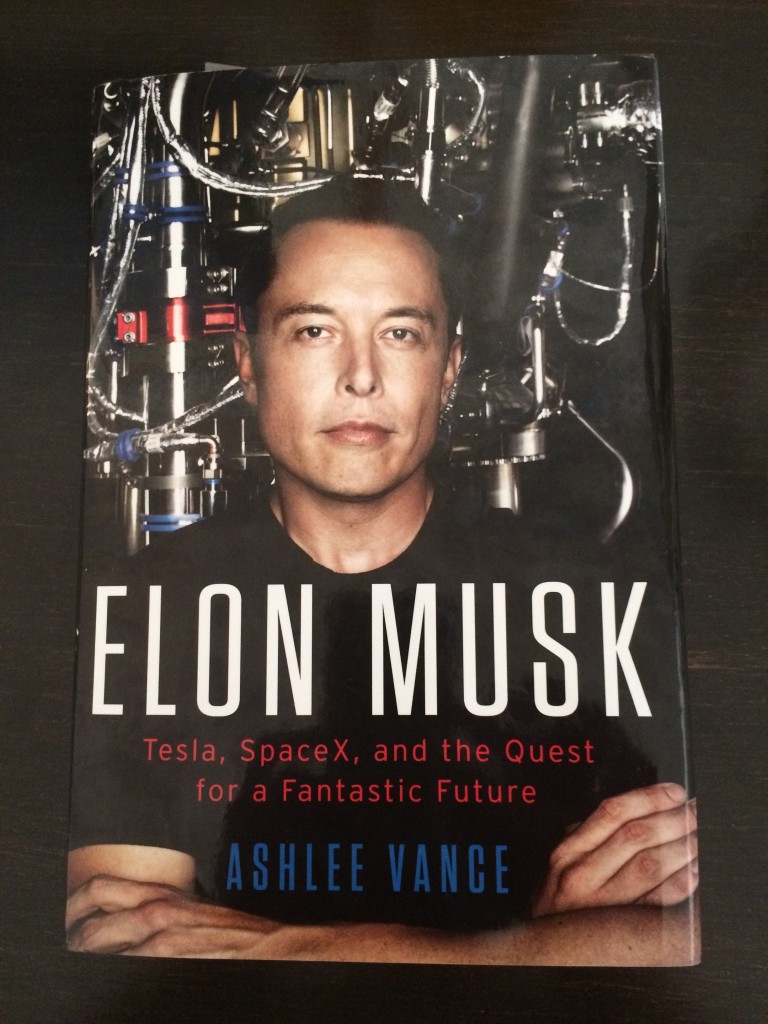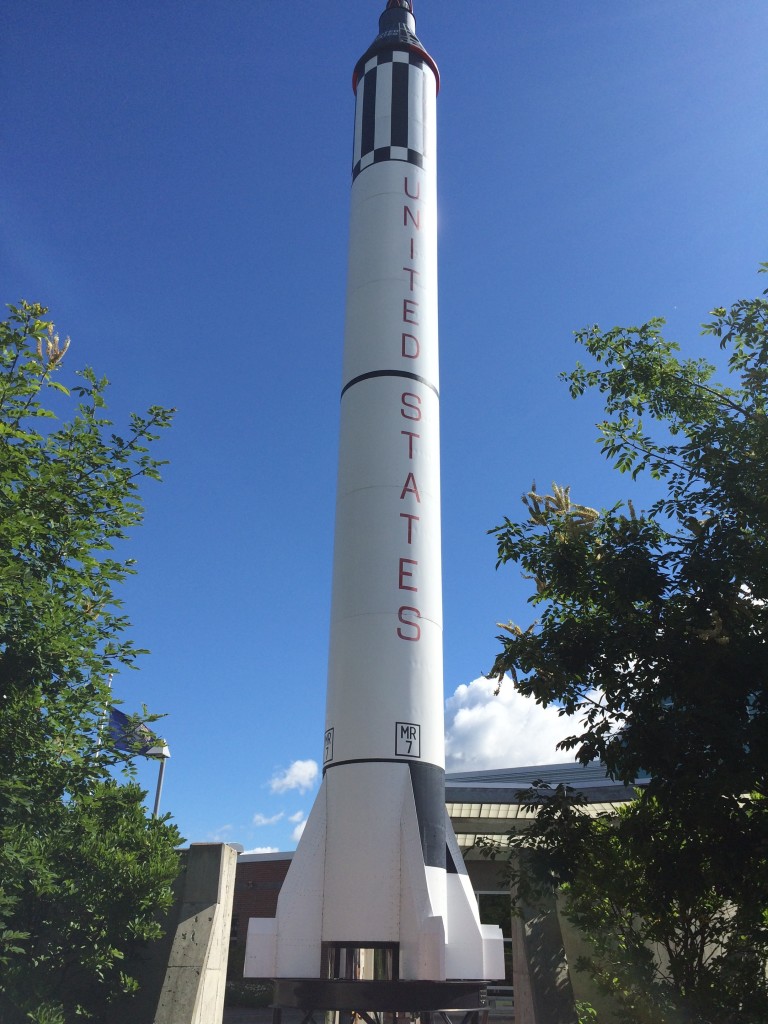 You might know him as the face of Tesla Motors and SpaceX, but when you read Ashlee Vance’s biography on Elon Musk you soon learn there is a whole lot more to discover about the man determined to “invent a future that is as rich and far-reaching as a science fiction fantasy.”
You might know him as the face of Tesla Motors and SpaceX, but when you read Ashlee Vance’s biography on Elon Musk you soon learn there is a whole lot more to discover about the man determined to “invent a future that is as rich and far-reaching as a science fiction fantasy.”
Elon Musk: Telsa, SpaceX and the Quest for a Fantastic Future is, truly, a fantastic read, bringing you into the life and mind of a fascinatingly unique, intriguing and intelligent human being with a work ethic most aptly described as “intense.” He is confrontational when impatient, audacious in his relentless drive and he never, never, never gives up.
After all, “Where Mark Zuckerberg wants to help you share baby photos, Musk wants to…well…save the human race from self-imposed or accidental annihilation,” writes Vance.
Born in 1971 in Pretoria, a large city in the northeastern part of South Africa, Musk comes from a family of intelligent, adventure seeking individualists – most vividly captured in a photo of Musk’s mother with her four siblings, all of whom are sitting in camp chairs reading books in the African bush with their parent’s single engine plane in the background.
As a young child, Elon was dreamy, awkward and bookish, immersing himself intensely in books such as Hitchhikers Guide to the Galaxy, Lord of the Rings and Isaac Asimov’s Foundation Series. When he ran out of books, he would read the Encyclopedia Britannica.
Needless to say, he spent a lot of his time engaging his mind. As his mother recalls, described in the early chapters of Vance’s book devoted to his family background, “He goes into his brain, and then you see he is in another world…He still does that now I just leave him because I know he is designing a new rocket or something.”
At seventeen years old, with a strong interest in computers and science fiction – and with an unusual maturity – Musk knew that his “entrepreneurial soul” would wither in South Africa, so he set his sights on Silicon Valley.
The first stop on his journey was Canada, where some of his relatives lived and where his younger brother, Kimball, soon joined him. He enrolled at Queens College in 1989, eventually transferring to the University of Pennsylvania where he studied economics and physics.
“When Elon gets into something, he develops just this different level of interest in it than other people,” writes Vance. “That is what differentiates Elon from the rest of humanity.”
He continues: “[Musk] would daydream at Queen’s and Penn and usually end up with the same conclusion: he viewed the Internet, renewable energy, and space as the three areas that would undergo significant change in the years to come and as the markets where he could make a big impact.”
The story of Musk’s journey as a young entrepreneur in Silicon Valley and his evolution into a celebrity-status industrial titan – “a modern alloy of Thomas Edison, Henry Ford, Howard Hughes, and Steve Jobs” – who is arguably the “most successful and important entrepreneur in the world” today (according to Jon Gertner, New York Times) is a lively and engrossing one that takes you through the ups and downs of his life and ventures with a chapter on each of his startups, including Zip2, PayPal, SpaceX, Tesla and Solar City.
With over 50 hours of conversation with Musk and interviews with close to 300 people, including employees and family members, Vance’s biography of Elon and his world is one of continual wonder and amazement:
Wonder that such a young man with no knowledge of the aeronautical industry – he didn’t know a lot about space, but he had a scientific mind, a “deep technical intelligence” and he read up on “old Soviet-era rocket manuals” and “spent months studying the aerospace industry and the physics behind it” (quotes from Jon Gertner, New York Times and book) – travelled to Russia in 2002 to negotiate rockets with the Russians and walked away when they wouldn’t meet his price.
“Musk asked point-blank how much a missile would cost. The reply: $8 million each. Musk countered, offering $8 million for two. They sat there and looked at him…And said something like, ‘Young boy. No.’ …At this point, Musk had decided the Russians were either not serious about doing business or determined to part a dot-com millionaire from as much of his money as possible. He stormed out of the meeting. On the return flight home Musk turned to his team and flashed a spreadsheet he’d created…and said, ‘Hey guys, I think we can build this rocket ourselves.'”
Amazed by his ingeniousness early on in Canada, as he and his brother read the local papers to find who the most important and interesting people were so they could begin cold-calling, eventually setting up lunch meetings with the likes of Peter Nicholson, a top executive of Bank of Nova Scotia, to discuss their online banking ideas.
Amazed by his intimidating impatience when, on one occasion, he became frustrated with some of the employees at Zip2, his first startup, which was a map and business directory that was eventually bought by Compaq.
“Employees at Zip2 would go home at night, come back, and find that Musk had changed their work without talking to them…”
“Musk said: ‘I would be frustrated waiting for their stuff, so I’m going to go and fix your code and now it runs five times faster, you idiot.’”
This certainly wasn’t the only astonishing comment he’d make. In the early years of Tesla, in an email to an employee that Musk was reprimanding for giving the wrong answer to a question Musk had asked him, said: “I want you to think ahead and think so hard every day that your head hurts. I want your head to hurt every night when you go to bed.”
Amazement when Musk finally launched Falcon 9 with success, making it one of only two private companies to have docked with the International Space Station. He rocked the long-established world of fat government-contracted rocket building with corporations like Boeing, proving that rockets could be built cheaper while also moving closer to SpaceX’s mission to serve as the “Southwest airlines of space.”
 And, finally, a sense of wonder as to whether Elon Musk will be able to alleviate his “deep seated fear about the long-term viability of human habitation on Earth” (quote by Saul Austerlitz in The National) by realizing his ultimate fantasy of enabling humans to colonize Mars.
And, finally, a sense of wonder as to whether Elon Musk will be able to alleviate his “deep seated fear about the long-term viability of human habitation on Earth” (quote by Saul Austerlitz in The National) by realizing his ultimate fantasy of enabling humans to colonize Mars.
Mr. Austerlitz writes: “Musk is, in Vance’s final estimation, an ubermensch, his experiences taking place at a level mere mortals cannot know.”
Ultimately, however, as Dwight Garner of the New York Times wrote, “What comes through [in Vance’s biography] is a sense of legitimate wonder at what humans can accomplish when they aim high.”
Whether Elon Musk will change the world and how we live in it in a revolutionary way while saving the planet one launch to Mars at a time, only the future will know.
But, I can tell you that reading Ashlee Vance’s biography about one of the most interesting entrepreneurs and “disruptor of things” in our time was like being transported into a crazy, magical realm, leaving me inspired to live my moments on planet Earth with a little less fear and a little more Elon Musk-like intensity.
